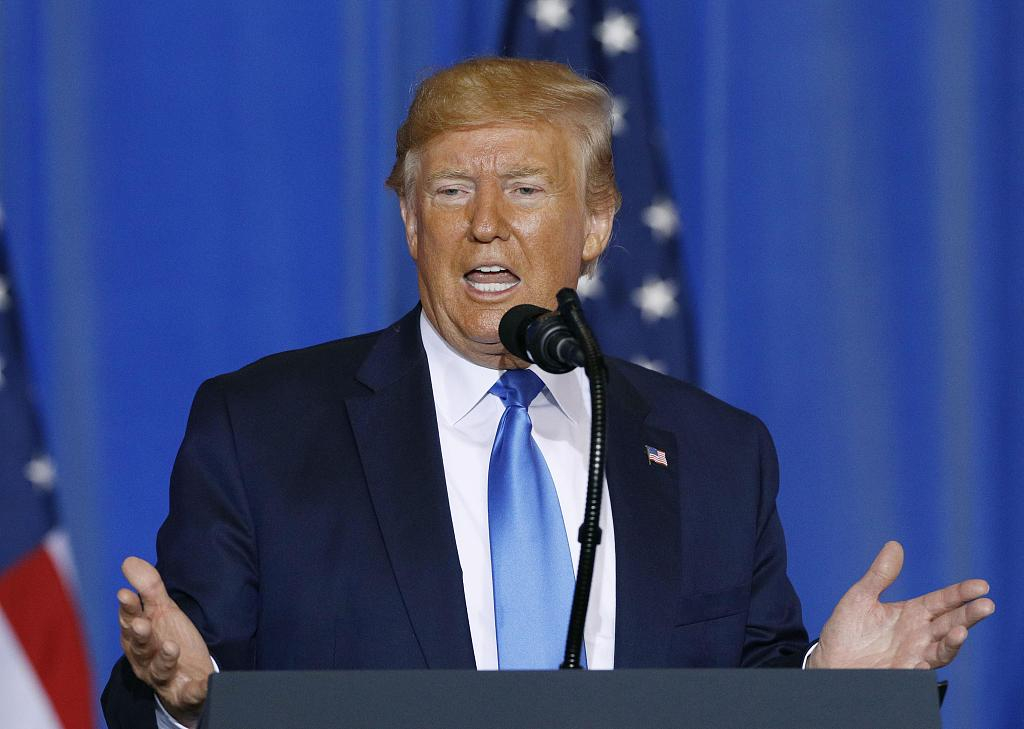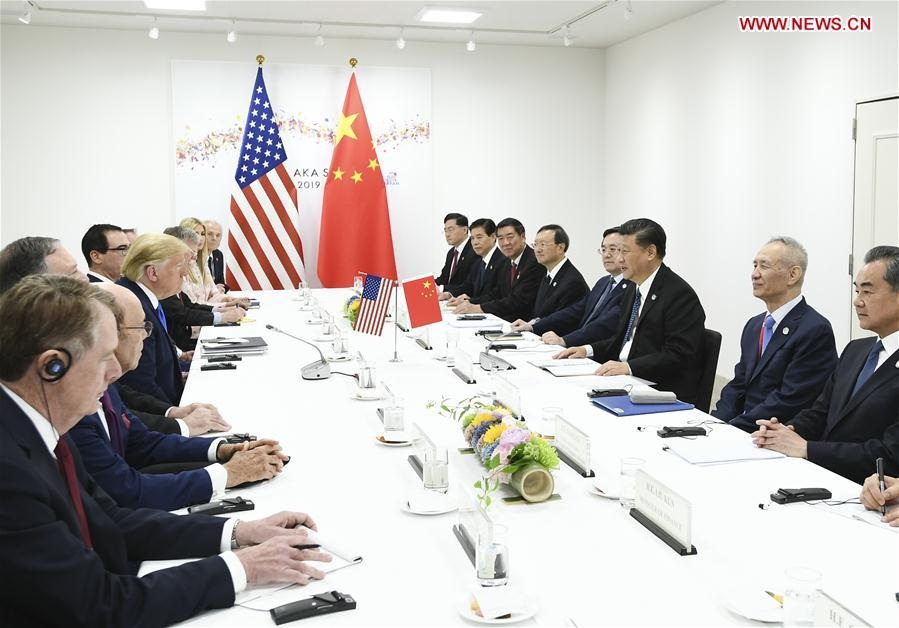

Editor's Note: Xu Qinduo is China Radio International's former chief correspondent in Washington and a senior fellow of the Pangoal Institution. The article reflects the author's opinion, and not necessarily the views of CGTN.
July 1 marks the 98th anniversary of the birth of the Communist Party of China (CPC). The Chinese, led by the Party, have scored unprecedented successes over the past nearly one hundred years: The founding of a new republic by gaining complete national independence, building China into the world's second largest economy through reform and opening-up, and lifting some 800 million people out of poverty.
As the Party marks the anniversary, China faces a complicated relationship with the United States, which deems China more in the sense of competition than cooperation. Some in the U.S. government even go as far as describing China as aiming to "replace the world order created by the U.S. and its allies." There's suspicion that a consensus might have been formed in Washington that the U.S. needs to do whatever it takes to slow down the growth of China.
In addition to the ongoing trade disputes, the U.S. has launched an all-government approach to deal with China, which it portrays as a "strategic competitor" in its 2017 National Security Strategy document. The U.S. media jump on the wagon and "largely focus on the harshest, loudest voices…" on China. There's more frequent presence of U.S. warships and military aircraft in the South China Sea. There's talk of Taiwan's value as a "chess piece" against the mainland.
At the same time, despite the headline story of the FBI urging "universities to monitor some Chinese students and scholars in the U.S.," President Donald Trump stressed at the G20 summit in Japan that he did not want there to be increased restrictions on Chinese students entering American schools, saying he wants them to be treated "just like anybody else."
With mixed messages from Washington from confronting China to stabilizing the bilateral relationship, how shall the CPC lead China to navigate a likely tumultuous time and a complicated relationship?

U.S. President Donald Trump talks about Chinese students and scholars at a press conference at the G20 summit in Osaka, Japan, June 29, 2019. /VCG Photo
First of all, it'd be wrong to underestimate the strength of the CPC leadership. It has its mistakes like the Cultural Revolution, but it has never been defeated by foreign forces. On the contrary, the Chinese military engaged with the U.S. in Vietnam and the Korea Peninsula in the 1950s and on, and the U.S. didn't win the wars. Those in Washington would be wise not to dream of a military confrontation with China.
Secondly, the U.S. side, with a deepening anxiety, has clearly overreacted to the rise of China. There's a need to clarify the misperceptions regarding Chinese strategic intentions. China's priority is and will be its people's welfare and national territorial integrity. Despite the rapid economic expansion over the past 40 years, China's per capita GDP in 2018 stood at less than 10,000 U.S. dollars, the 72nd place in the global ranking.
Among the five permanent UN Security Council members, China is the only country that is yet to achieve territorial integrity. The question of Taiwan remains elusive to be resolved through peaceful means.
The China hawks in Washington, who unfortunately dominate White House policymaking, adopt a zero-sum mentality and see China's rise as a threat to dethrone the U.S. as the number one country. The idea of decoupling the two countries in economic and trade ties and the talk of clash of civilizations risk a catastrophe for the whole world as well as for China and the United States.
Thirdly, if the U.S. truly sees China as a "competitor," then it should focus on its domestic fronts rather than China. Former U.S. trade representative Charlene Barshefsky pointed out in a recent discussion that "the single most important thing that the United States can do, if it wants to sort of tame what it views as the 'China challenge,' is to get our own house in order."
She said that the U.S. R&D spending as a percent of GDP has fallen consistently since the 1950s or 1960s. The U.S. infrastructure is falling apart. Its education system is lagging behind in the world.
"That has to change if the United States is going to address the China challenge. If we don't maintain our competitiveness, if we don't maintain the best educated and most skilled workforce, we will lose – regardless what China does, regardless what China agrees to."

Chinese President Xi Jinping meets with U.S. President Donald Trump in Osaka, Japan, June 29, 2019. /Xinhua Photo
Or, as former president Jimmy Carter noted the different policies between the U.S. and China: "I think the difference is if you take 3 trillion U.S. dollars (of U.S. military spending) and put it in American infrastructure, you'd probably have 2 trillion U.S. dollars left over. We'd have high-speed railroads. We'd have bridges that aren't collapsing. We'd have roads that are maintained properly. Our education system would be as good as that of, say, South Korea or Hong Kong."
Ultimately, the way to win the competition is domestic building – not to slow down the Chinese growth, but to speed up the U.S. development. Otherwise, if the U.S. follows those hawkish ideas, its prospect, as Barshefsky pointed out, would not be promising: "We will simply not keep up with a China that is hungry, that has tremendous internal talent, that is 1.4 billion people, and that has the scale and the capacity to deliver."
Correspondingly, the Communist Party of China should continue to concentrate on economic growth by further opening up its market, embracing foreign investment, cultivating domestic consumption, investing in R&D to spur innovation and so on.
The Edelman Trust Barometer global survey found that about 84 percent of the surveyed Chinese people said in 2017 they have trust in the government, beating the rates in all other countries measured. That number went up to 86 percent in 2018.
With such a high approval rating, the CPC has every reason to be successful in its endeavor to revitalize the Chinese nation. No country, including the U.S., is likely to be able to stop the continuous rise of China.
(If you want to contribute and have specific expertise, please contact us at opinions@cgtn.com.)

Copyright © 2018 CGTN. Beijing ICP prepared NO.16065310-3
Copyright © 2018 CGTN. Beijing ICP prepared NO.16065310-3